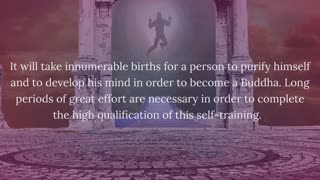Buddhism: Duty of Religion
Our belief in some power beyond the world is as old as the human race.
Different religions have given this belief enduring substance, and spawned a rich diversity of ritual and ceremony.
While theologians debate religious truths, great philosophers attempt to understand our physical world, grappling with logic in their search for knowledge and certainty.
The word “religion” has no one generally accepted definition.
Philosophers, sociologists, psychologists, theologians, and many others interested in a particular aspect of life, have all defined religion in their own ways and for their own purposes.
However, the main purpose of every religion is to teach people how to lead a respectable and harmless life and to find out their liberation from physical and mental suffering.
Religions are meant for the emancipation of living beings.
Religions are not mere subjects of study and essay writing, but are practical modes of conduct in the grooming of human beings externally in matters of the mundane and internally in things that concern the inner spirit.
Religion must be experienced at the very source of its beginning and lived in utter abandonment, through all phases of change to attain a spirituality and inner growth.
Among all the great founders of religions, it was the Buddha alone who encouraged the spirit of investigation among his followers.
He advised them not to accept even his teachings with blind faith and without thorough impartial investigation.
Therefore, it is no exaggeration to say that Buddhism can be called a religion of science.
Whatever scientists have discovered so far, it has never gone against the teachings of the Buddha.
Buddhism is truly a religion suited to the modern, scientific world.
The light, which comes from nature, from science, from history, from human experience, from every point of the universe, is radiant with the Noble Teachings of the Buddha.
Source: Food for the Thinking Mind by K Sri Dhammananda
-
 1:21
1:21
Buddhist Mind
3 years agoBuddhist Parable 57: Goddess of Wealth/Goddess of Poverty
71 -
 0:23
0:23
EntertainmentVideos
3 years agoBuddhism
10 -
 5:00
5:00
SmittyTravels
3 years ago $0.03 earnedStrange Religion
283 -
 4:40
4:40
Christian Writings
3 years agoChristless Religion
171 -
 14:32
14:32
Eccumenic
3 years ago $0.01 earnedWhat Is Religion
63 -
 7:07
7:07
Ayn Rand
3 years agoAyn Rand’s Religion
61 -
 0:31
0:31
Buddhist Mind
3 years ago $0.02 earnedBuddhism: 3 Characteristics in Everything
109 -
 14:50
14:50
Gospel Outreach Conversations
3 years agoReligion and Politics
981 -
 2:46
2:46
Buddhist Mind
3 years agoAttaining Buddhahood | Buddhism
43 -
 4:27
4:27
Singer
3 years agoLosing My Religion
18